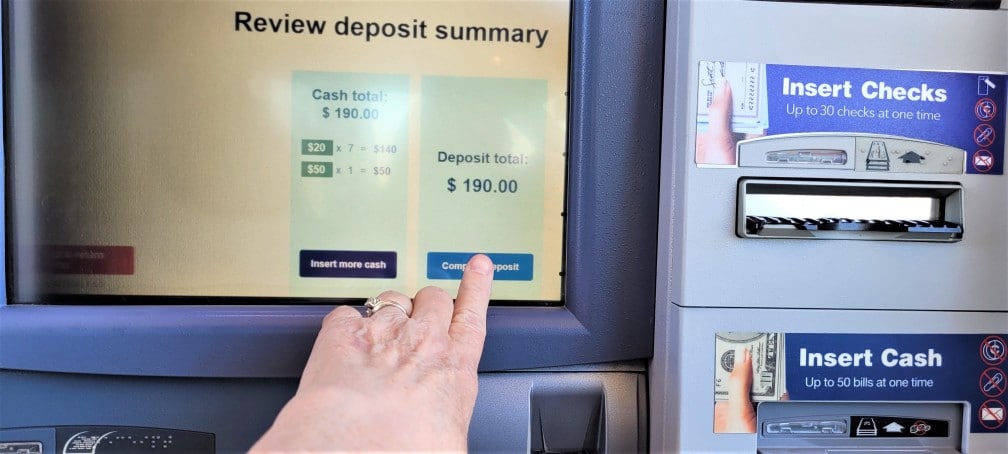How Much Is $24 Dollars An Hour Over A Year? Is It Livable?
Important Note: When you buy through our links, we may earn a commission. As an Amazon Associate we earn from qualifying purchases. Content, pricing, offers and availability are subject to change at any time - more info.
Knowing how much you earn a year and how to budget that money to be able to pay for everything you need is crucial in the modern world. If you’re making 24 Dollars an hour, you need to calculate how much that is a week, month, and year to do your budget based on your needs. However, figuring out how much you earn is only half the work, and you need to plan your budget correctly.
Advertisement
At 24 dollars an hour at 8 hours a day and roughly 40 hours a week from Monday to Friday, you should earn $960 dollars per week. There are approximately 48 work weeks in a year for most Americans, which makes the calculation simple. The average weekly rate times the amount of weeks equals $46,080 dollars per year.
Though you may now know how much you earn a year, the amount of money you get can vary if you get paid per hour. If you work different length days or have more time off, you will need to do a different calculation. Below we will explain how to calculate your yearly income and set up a budget accordingly.
- How To Calculate How Much You Earn Per Year
- How To Set Up Your Monthly Budget Using Your Yearly Income
- Example Of A Full Monthly Budget
- What’s Next?
How To Calculate How Much You Earn Per Year

Working out how much you earn per year can be tricky if you get paid per hour. Luckily, you can take some steps to determine how much your yearly income is, which can help you do your monthly budget. Though the amount you earn per hour will ultimately affect how much you make a year, the explanation below will quickly help you do the calculation.
- Determine how many hours you work a day – Depending on the agreement you have with your employer, you can get paid from the moment you arrive at work until the moment you leave. However, it isn’t too rare that you will get paid only for the time you spend working, which means you will not get paid for a lunch break or any other breaks you take during work.
It is imperative to remember that some states in the US have rules that allow you to get paid even for short breaks, but others do not. If you are not sure whether you get paid during rest periods or not, you can ask your employer and do some research based on where you work and which state that falls under.
Advertisement
To simplify the example calculation, we will assume that you work a 9-to-5 job and thus work for 8 hours a day, with full pay for each hour. If you earn 24 dollars an hour, you make around 192 dollars a day, excluding overtime or other compensation forms.
- Determine how much time you work per week – Determining how many hours you work in a week is essential to help you see how much you make a year. Some businesses have staff who work six days a week while others work four days a week. To determine how much you earn weekly, you need to know how many days you work and how much you make per day.
Between 25 and 54, you will likely work for around 40 hours a week. This calculation represents you working eight-hour shifts five times a week on average. If you regularly work longer shifts or more days, you can add this time to your weekly calculations to make your budget more accurate, though I suggest you stick to a lower estimate.
Working on the estimate of around 40 hours worked per work week, we can calculate what you earn using one of two methods. If you work for the same amount of hours every day, you can multiply the amount you get paid daily by the number of days you work, or you can multiply your hourly fee by the total hours you work in a week. Either way should be around 960 dollars per week.
- Calculate your Yearly Income – Now that you know how much you earn per work week, you can quickly determine your earnings per year based on the average company and its policies. It would be best to keep in mind that not all companies work the same, and other things may change this calculation, such as sick days, family leave, or other leave days or occurrences.
To determine how much you earn per year, you need to multiply your weekly income by the number of work weeks you have in a year. An individual’s number of work weeks can vary due to personal circumstances or company policy, such as a two-week dedicated leave time per year.
Alternatively, you can also use your daily earnings to calculate your yearly income, though that requires more steps and more in-depth calculations. If you want to calculate how much you earn per year based on your daily earnings, you need to multiply your daily income by the number of days you work in a week, considering that not all months are the same length.
It would help consider holidays and days that the company does not operate, such as a leave period. Once you know how many days you work a month with those factors included, you can multiply the monthly salary by the number of work months in a year.
Advertisement
I recommend using the weekly method as this is much simpler, though it might not be as accurate as doing a yearly income calculation based on the exact number of days you work in a year. When considering work leave and holidays, there are 48 work weeks in a year. Multiplying 48 by your weekly income would result in a yearly revenue of 48080 dollars a year.
- Calculate Monthly Income (optional) – If you want to make a monthly budget, you will naturally need your monthly income to help you do that. By dividing your yearly income by 12 months, you will make around 3840 dollars a month.
However, this is by no standard an effective way of determining your monthly payment as there are long months and shorter months, and some months will have more non-work days. Though this isn’t the most accurate calculation of a monthly income, it is the more widely used method and even Indeed uses it (though I deducted some weeks they did not)
How To Set Up Your Monthly Budget Using Your Yearly Income

Now that you have your yearly income calculated, you can use the last step in the previous section to calculate your estimated monthly payment and start working on your budget. It is essential to remember that your budget will depend heavily on your expenses, and no two people have the same budget exactly.
There is a general rule to use the 50, 30, and 20 budget plan when you make your budget. This method allows for 50% of earnings to go to what you need, like housing and groceries, 30% goes to your wants, like alcoholic beverages and nights out, and 20% goes towards saving and debt. However, before you can spend money on desires, you need to cover what you need, and here are some of the basics:
- Housing – Whether you’re renting or paying a mortgage, ensuring a roof over your head is essential. Housing is likely the most crucial of all the payments you need to make in an average month. Naturally, not everyone will have the same amount of money to spend on housing, so be sure to budget according to your circumstances.
- Groceries – After your living space, you need to ensure that you have the basic groceries required in a month. Groceries are a broad category, including food for the month and essential hygiene products such as soap and toothpaste. It does not include things you want, like alcoholic beverages or imported Japanese steaks.
- Water and Electricity – Depending on where you stay and your lease agreement, these expenses may get included in your monthly rent. However, if it is not a part of your rent, you must have this in your budget, as not paying these things can negatively affect your household. Water and electricity will ensure you are clean, healthy, and can cook the food you need.
- Transportation – If you work a while away from home, transportation is another essential part of your budget. You cannot earn money to pay for your budget if you don’t go to work. The monthly cost of transportation can vary significantly depending on your needs and what you have.
If you have a car, you are paying off, both the car payments and the fuel you need fall under this category of your budget. However, if you use public or other means of transport like a taxi, you need to calculate your estimated costs and include that too.
- Insurance – Insurance, though not everyone has it, is essential for the world we live in today. Insurance on you, your belongings, and even your medical care is a great way to help you stay out of financial distress or trouble. If you have life insurance that pays out to those under your care, that is likely a very high priority on your budget list.
Additionally, suppose you have medical insurance and personal insurance for your car or belongings. In that case, that can also save you a lot of money in the long run, making it at least near-essential. If you have any option in the matter, it is also good to have disability cover, which can help support you in the case of losing your job due to unforeseen happenings that cause you to become disabled.
- Internet Payments – Once again, you may have to pay for additional access to the internet or Wi-Fi depending on where you stay and your lease agreement. If that is the case, this is also a nearly essential part of your payment plan since it is helpful for all forms of communication and can also be beneficial for entertainment.
Paying internet fees can be seen as a need to an extent, but if you have the option to get a faster or better internet connection, this is no longer a need, and instead, it becomes a desirable service or a want.
Advertisement
- Phone And Other Devices – Having a phone in today’s day and age is essential to contact your family, friends, and even your boss or co-workers. For this reason, it is on the list of essential items that you need to factor into your budget.
Additionally, if you work online and need a computer or laptop, this payment also falls under needs. You must first categorize and include all the items you need before adding something you want, like a gaming laptop.
Example Of A Full Monthly Budget

Now that we have all that we need to pay for every month listed above, we can continue with how your budget should look. Naturally, your budget will not look the same as the example below since you may have different needs, wants, and debts to pay. However, considering everything below, this example budget may be enough to give you a good starting point to make your own.
Since there are different prices for everything on the budget below, I will leave the fields that the price should be blank unless there is a clear price everyone should be paying. Feel free to put your estimated costs in the empty spaces.
| What We Need To Pay: | The Cost Of These Things: |
| Housing (Rent / Mortgage) | $ – |
| Basic groceries | $ – |
| Water and electricity (or gas) | $ – |
| Transportation | $ – |
| Insurance | $ – |
| Internet costs | $ – |
| Phone and other devices | $ – |
| What We Want: | |
| Streaming services ( Netflix or Disney+) | $ – |
| Entertainment | $ – |
| Takeout | $ – |
| Gaming Console or PC | $ – |
| Alcoholic drinks | $ – |
| Weekend away | $ – |
| Savings And Debts : | |
| Savings (5% of income) | $ 192 |
| Student loans (10% of income) | $ 384 |
| Other Debts (5% of income) | $ 192 |
| Total Expenses: | $ – |
| Monthly Income: | $ 3840 |
| Remaining: | $ – |
What’s Next?
As a summary of everything above, you should now know how to calculate your yearly and monthly income, and you should be able to make a total budget of your income and expenses. Remember that there will always be differences for different people as we all have different needs and wants. However, If you use all the information above, you should be on the right track.


 Please Support Me on Ko-fi
Please Support Me on Ko-fi